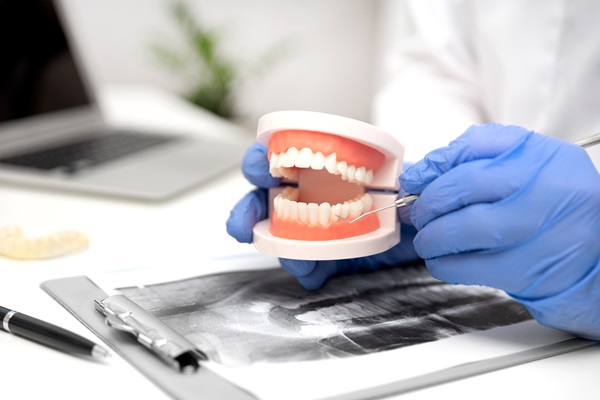5 Ways to Begin Relieving and Preventing TMJ Pain

If you or anyone you know has been having sleepless nights as a result of chronic jaw pain, it could be that they are suffering from Temporomandibular Joint (TMJ) disorder. Symptoms include difficulty chewing foods without discomfort, increased headaches and the inability to move the mouth freely.
Methods for relieving pain
As a person searches for methods to help in the relief of symptoms related to TMJ, the focus should be on the methods that not only provide immediate relief but ones that address the root cause of the disorder. Here are some helpful strategies to relieve and prevent reoccurrence of TMJ.
These methods include the following:
Take medications
One good thing about the medications for relieving pain related to TMJ is that they are mostly over-the-counter medicines that someone can get at a pharmacy or grocery store. These medications include nonsteroidal anti-inflammatory drugs (NSAIDs) like aspirin and ibuprofen. They work by relieving the swelling and muscle pains caused by TMJ. It might also be advised to get muscle relaxants and anti-anxiety drugs from your doctor. These drugs will work to loosen the jaw that allows for less discomfort all around. Anti-anxiety drugs can provide a more stress-free environment while treating TMJ.
Use mouthguards
Also referred to as splints, mouthguards are custom-designed to fit over the teeth and prevent close contact between the lower and upper teeth. Being that it hinders teeth grinding, it relieves the jaw muscles and joints from the stress of grinding. A mouthguard that provides the perfect fit as well as protection, will aid greatly in the healing process of TMJ.
Engage in jaw stretches
This is another great way for getting relief from TMJ. In order for this to be effective, it is necessary to be consistent with this exercise. Be sure to strictly follow a routine and over time, the difference that it is making, will be noticeable. Jaw stretches allow for all of the facial muscles to stretch and work together to get back to normal.
Minimize chewy foods
Don’t forget that the healing process includes working towards relieving the jaw from stress. Staying away from chewy foods will do a lot of good because it doesn't require the jaw to work as hard to break down the food. Sticky foods will only require that more work is done to chew the food, and during the healing process, this is not advised to do. It has been noticed that each time gum or candies are chewed, flare-ups typically occur. Keep gum chewing to a minimum or completely eliminate it until the jaw completely heals.
Apply ice packs
This strategy has been confirmed to aid in relief from TMJ pains. The ice packs can be applied to the sides of the face and temple. It works by relaxing tight muscles and as a result, reduces spasms. The coldness will help relieve the feeling of pain or pressure for a short time and is a great temporary relief aid.
Although these 5 strategies can bring about significant relief from TMJ pains and forestall future occurrences, it does not take the place of the professional dental help that one may need. Always keep to regular appointments with the dentist.
If you still have concerns or questions, give us a call today. Our trained staff will assist you in the healing process.
Request an appointment here: https://www.smilesforlifedentalgroup.com or call Smiles for Life Dental Group at (408) 500-0819 for an appointment in our Santa Clara office.
Check out what others are saying about our services on Yelp: Read our Yelp reviews.
Recent Posts
It is important to adjust dentures when they cause concerns to help ensure the issues are resolved and to avoid more severe concerns and the need for denture replacement. Denture adjustments may be necessary when your dentures do not fit properly, experience minor damage, or are outdated and worn down.A denture adjustment involves minor improvements…
Root canals are one of the most common dental procedures dentists perform. However, there are many different types of dentists for you to choose from, making it necessary to understand if your general dentist is able to perform specific dental services, such as a root canal. General dentists are equipped to perform a root canal. In…
Understanding how Invisalign works is the first thing you must do when considering this popular teeth straightening option. You will undergo an initial evaluation performed by a dental professional, who will then assign you a certain number of custom-made aligner sets, which need to be switched out every two weeks. After using the last set…
You may have heard a lot about sedation dentistry recently. It is appealing to many patients, especially those who have fears about dental treatments. Visiting the dentist may not be the most exciting event in your life, but these appointments are important. You should not avoid seeing the dentist because you are worried about the…


